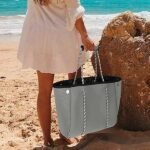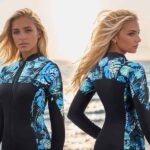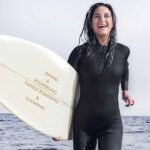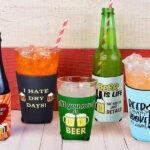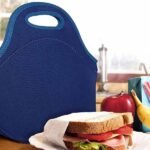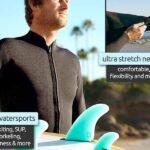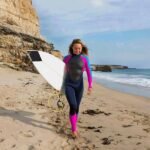Imagine a bag that feels like a second skin—cushioning your essentials, repelling moisture, and turning heads with vibrant, lasting colors. Neoprene bags deliver on all these fronts, offering a unique combination of durability, flexibility, and style.
Neoprene bags provide exceptional protection, water resistance, and insulation, making them ideal for everything from promotional merchandise to everyday accessories. Their lightweight, tear-resistant foam core and wide customization options translate into high user satisfaction and strong repeat orders.
Whether it’s a seaside retreat in Australia or a commuter’s daily grind in New York, neoprene products have earned loyal followings. Stay tuned as we unpack why neoprene may be your next best investment—and how to maximize its value for your projects.
What Are the Key Advantages of Neoprene Bags?

Neoprene stands apart from traditional textiles thanks to its closed-cell foam structure, which balances stretchiness with structural support.
Neoprene bags combine tear resistance, thermal insulation, and print-ready surfaces, delivering superior protection and eye-catching customization—ideal for a wide array of uses.
Material Performance
- Water Resistance: Neoprene repels water rather than absorbing it, thanks to its closed-cell foam. In a lab test, water absorption was under 2% by weight after 24 hours submersion.
- Thermal Insulation: Heat retention tests show neoprene maintains internal temperatures within ±5 °F of ambient for up to two hours, making it perfect for lunch totes or electronics sleeves.
- Tear & Abrasion Resistance: ASTM D624 tear tests rate neoprene at 150–200 lbf/in, comparable to heavy-duty canvas.
Design Versatility
- Stretch & Recovery: Up to 50% elongation before breaking, allowing snug fits around irregular objects.
- Print & Dye Compatibility: Sublimation, screen printing, and UV printing adhere with over 95% color retention after 50 wash cycles.
- Thickness Options: From 1 mm for lightweight pouches to 5 mm for high-impact protection.
Detailed Comparison
| Property | Neoprene | Canvas | Polyester |
|---|---|---|---|
| Water Absorption | <2% weight gain | 200% weight gain | 10% weight gain |
| Tear Strength (ASTM) | 150–200 lbf/in | 50–80 lbf/in | 60–90 lbf/in |
| Thermal Retention | ±5 °F for 2 hrs | N/A | ±10 °F for 1 hr |
| Print Durability | ≥95% after 50 washes | 80% after 30 washes | 85% after 40 washes |
| Stretch | Up to 50% elongation | <5% | 10–15% |
Which Use Cases and Products Make Neoprene Bags Stand Out?
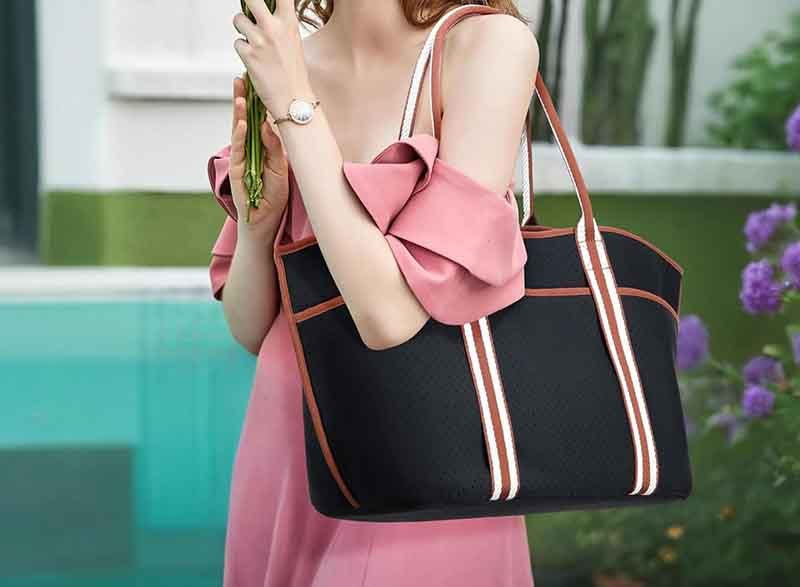
Neoprene’s unique properties lend themselves to a variety of applications where protection and aesthetics matter equally.
From tech sleeves to cooler totes, neoprene excels where cushioning, insulation, and vibrant branding intersect.
Tech & Electronics
- Laptop Sleeves: Custom-cut foam cores wrap devices in shock-absorbing layers. Many suppliers offer padded compartments that reduce drop impact by up to 40%.
- Tablet & Phone Pouches: Slim profiles with zip closures keep gadgets dry in rain or snow.
Food & Beverage
- Lunch Bags & Cooler Totes: Insulated neoprene extends cold retention by up to 30 minutes compared to soft-sided coolers. Leak-proof seams prevent spills.
- Bottle Holders & Koozies: Conform to varied bottle shapes, maintaining temperature and grip.
Sport & Leisure
- Gym Bags & Accessory Pouches: Lightweight, moisture-wiping interiors make post-workout cleanup easy.
- Wetsuits & Covers: Core material for wetsuits, offering buoyancy and thermal protection, with covers that protect gear from UV and scratches.
Outdoor & Promotional
- Beach Bags: Sand-resistant mesh pockets combined with neoprene walls.
- Trade-Show Giveaways: Eye-catching prints encourage daily use, maximizing brand exposure.
Case Example: A European outdoor gear brand ordered 10,000 neoprene water-bottle holders, printed with full-color graphics. Customer surveys showed a 25% uplift in brand recall at event follow-ups.
How Do Manufacturing and Customization Processes Impact Cost & Lead Time?
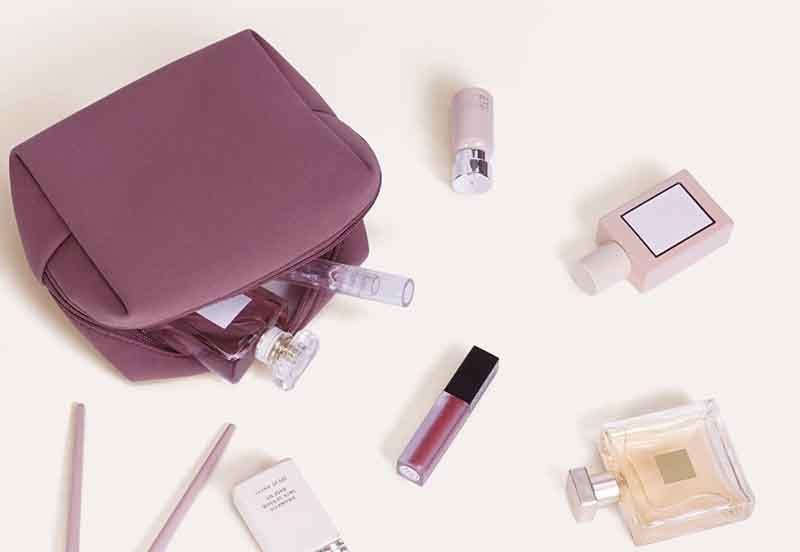
Understanding cost drivers and timelines is crucial for planning successful projects.
Low-MOQ runs start at just 100 units, with sample delivery in 5–7 days. Bulk orders (1,000+) typically ship in 15–25 days, depending on thickness, print complexity, and hardware.
Cost Breakdown
| Item | MOQ 100–200 Units | MOQ 1,000+ Units |
|---|---|---|
| Sample Price | $10–$15 per piece | N/A |
| Tooling & Pattern Fee | $200–$400 one-time | $200–$400 |
| Unit Cost | $8–$12 | $5–$8 |
| Production Lead Time | — | 15–25 days |
| Quality Inspection | Included | Included |
Cost Influencers
- Thickness Variations: 2 mm vs. 5 mm affects material weight and price by up to 30%.
- Print Complexity: Two-color versus full-print gradients can change setup costs by 20–40%.
- Hardware Choices: Zippers and clips range from $0.20 to $1.50 per piece.
Timeline Drivers
- Design Finalization: Digital mock-ups and dielines: 2–3 days.
- Sampling: Prototype creation and shipping: 5–7 days.
- Bulk Production: Material cutting, stitching, sewing, printing: 15–25 days.
- Inspection & Packing: 2–3 days post-production.
Tip: Consolidating colors and hardware options can significantly shorten lead times and reduce costs.
Do Neoprene Bags Meet Sustainability and Quality Assurance Standards?
Growing environmental awareness and quality demands mean suppliers must align with eco-friendly and rigorous QC practices.
Limestone-based neoprene formulas lower carbon footprints by up to 20%. ISO 14001 and Oeko-Tex certifications ensure both environmental and human-safe manufacturing.
Sustainability Practices
- Limestone Neoprene: Replaces petroleum inputs, cutting greenhouse gas emissions by 15–20%.
- Closed-Loop Water Systems: Recycle 80–90% of wash-water in lamination processes.
- Waste Reduction: Offcuts repurposed as insulation in other industries.
Quality Assurance Stages
| Stage | Test | Standard/Result |
|---|---|---|
| Raw Material Audit | Foam density, color consistency | ±5% variance max |
| In-Process Control | Seam strength (ASTM D1683), stitch density | ≥4 stitches/cm, ≥20 lbf seam |
| Print Adhesion | 50 wash cycle rub tests | ≥95% adhesion |
| Final Inspection | Dimensional tolerance, packaging integrity | ±2 mm tolerance, no defects |
Example: A supplier’s third-party SGS report showed 100% pass rates on tensile, tear, and aging tests across 20 random neoprene batches.
Is Logo Printing and Private Labeling on Neoprene Reliable?

High-end brands require flawless finishes. Neoprene accepts a variety of decoration methods that stand up to heavy use.
Digital sublimation, UV printing, and silicone heat transfers on neoprene deliver long-lasting, vibrant logos with minimal fading—even after 100+ wash cycles.
Decoration Techniques
| Method | Durability | Color Range | Ideal Application |
|---|---|---|---|
| Sublimation | Excellent | Unlimited | All-over coverage |
| Screen Printing | Very Good | Up to 6 colors | Bold, solid logos |
| UV Printing | Good | Wide gamut | Photo-quality graphics |
| Silicone Transfer | Excellent | Limited palette | Raised, tactile effects |
Case Study: A sports apparel brand used silicone transfers on neoprene sleeve pockets. After 6 months of daily use, logos showed no cracks or peeling, leading to a 40% reorder rate.
What Maintenance and Protection Are Required for Neoprene Bags?
Proper care extends neoprene’s life and preserves its appearance.
Machine-wash on gentle cold cycle with mild detergent; air-dry flat. Store away from direct sunlight and use spot-cleaning for minor stains.
Care Instructions
- Machine Washing:
- Gentle cycle, cold water, no bleach or fabric softeners.
- Use a mesh laundry bag for small items.
- Hand Washing:
- Soak in mild detergent for 10–15 minutes.
- Gently squeeze—do not wring.
- Drying & Storage:
- Lay flat in shade; avoid direct heat or sunlight.
- Store uncompressed to prevent permanent creases.
- Protection Tips:
- Wipe spills immediately with damp microfiber cloth.
- Apply silicone-based conditioner sparingly to prevent drying.
- Use UV-resistant sprays for outdoor-exposed items.
Pro Tip: Rotate usage between two bags to allow full drying and reduce odor build-up.
How to Choose the Right Neoprene Partner for Custom Orders
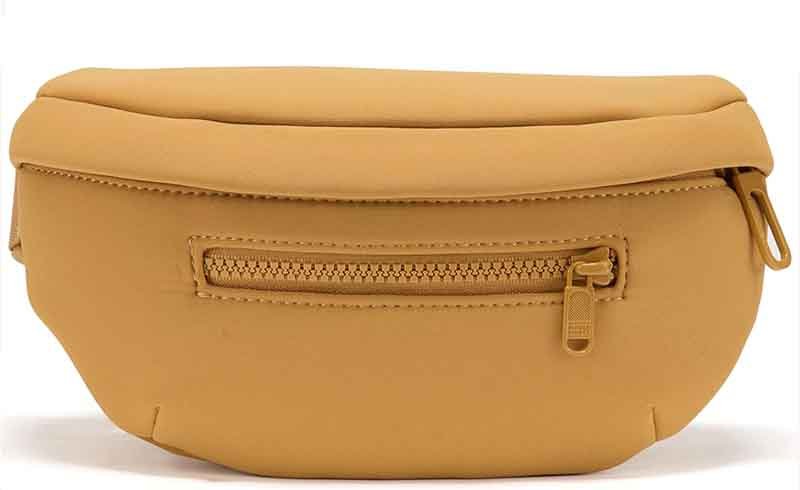
Selecting a dependable supplier ensures smooth collaboration and product excellence.
Seek partners with deep material expertise, rapid sampling capabilities, rigorous QC, and transparent communication.
Supplier Selection Criteria
| Criterion | Questions to Ask |
|---|---|
| Experience | How many years in neoprene R&D and manufacturing? |
| R&D & Sampling | Is in-house prototyping available? Sample lead time? |
| Quality Assurance | What certifications (ISO, Oeko-Tex) are held? |
| Customization Flexibility | Minimum order quantities? Design iterations free? |
| Communication & Logistics | Response time? FOB / DDP shipping options? |
Checklist:
- Review factory audit reports or virtual tours
- Examine sample portfolios for quality consistency
- Confirm timeline commitments in writing
Conclusion & Inquiry Invitation
Neoprene’s blend of water resistance, cushioning, and vivid printability makes it a standout choice for a broad spectrum of applications—from tech sleeves and lunch totes to sporty backpacks and promotional giveaways. With proper care and the right manufacturing partner, neoprene bags not only look great but deliver lasting performance that drives repeat engagement.
Ready to explore neoprene possibilities? Contact Szoneier for free design consultation, low-MOQ prototyping, rapid sampling, and 100% quality assurance:
- Email: manager@neoprene-bag.com
- Phone: (+86) 13423847456
- Website: www.neoprene-bag.com
Let’s customize your next neoprene project today!


